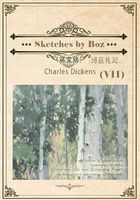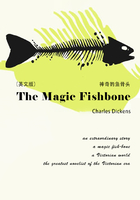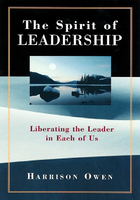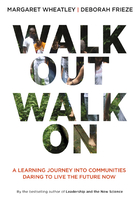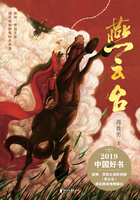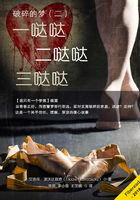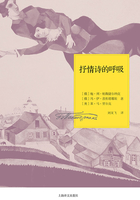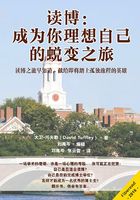It was a day or two afterwards, that Mr. Gibson made time to ride round by Hamley, desirous to learn more exact particulars of this scheme for Roger than he could obtain from any extraneous source, and rather puzzled to know whether he should interfere in the project or not. The state of the case was this:—Osborne's symptoms were, in Mr. Gibson's opinion, signs of his having a fatal disease. Dr Nicholls had differed from him on this head, and Mr. Gibson knew that the old physician had had long experience, and was considered very skilful in the profession. Still he believed that he himself was right, and, if so, the complaint was one which might continue for years in the same state as at present, or might end the young man's life in a hour—a minute. Supposing that Mr. Gibson was right, would it be well for Roger to be away where no sudden calls for his presence could reach him—away for two years? Yet if the affair was concluded, the interference of a medical man might accelerate the very evil to be feared; and after all Dr Nicholls might be right, and the symptoms might proceed from some other cause. Might? Yes. Probably did? No. Mr. Gibson could not bring himself to say yes to this latter form of sentence. So he rode on, meditating; his reins slack, his head a little bent. It was one of those still and lovely autumn days when the red and yellow leaves are hanging-pegs to dewy, brilliant gossamer-webs; when the hedges are full of trailing brambles, loaded with ripe blackberries; when the air is full of the farewell whistles and pipes of birds, clear and short—not the long full- throated warbles of spring; when the whirr of the partridge's wings is heard in the stubble-fields, as the sharp hoof-blows fall on the paved lanes; when here and there a leaf floats and flutters down to the ground, although there is not a single breath of wind. The country surgeon felt the beauty of the seasons perhaps more than most men. He saw more of it by day, by night, in storm and sunshine, or in the still, soft, cloudy weather He never spoke about what he felt on the subject; indeed, he did not put his feelings into words, even to himself, But if his mood ever approached to the sentimental, it was on such days as this. He rode into the stable-yard, gave his horse to a man, and went into the house by a side entrance. In the passage he met the squire.
'That's capital, Gibson! what good wind blew you here? You'll have some lunch? it's on the table, I only just this minute left the room.' And he kept shaking Mr. Gibson's hand all the time till he had placed him, nothing loth, at the well-covered dining-table.
'What's this I hear about Roger?' said Mr. Gibson, plunging at once into the subject.
'Aha! so you've heard, have you? It's famous, is it not? He's a boy to be proud of, is old Roger. Steady Roger; we used to think him slow, but it seems to me that slow and sure wins the race. But tell me; what have you heard? how much is known? Nay, you must have a glass full. It's old ale, such as we don't brew now-a-days; it's as old as Osborne. We brewed it that autumn and we called it the young squire's ale. I thought to have tapped it on his marriage, but I don't know when that will come to pass, so we've tapped it now in Roger's honour.'
The old squire had evidently been enjoying the young squire's ale to the verge of prudence. It was indeed as he said, 'as strong as brandy,' and Mr. Gibson had to sip it very carefully as he ate his cold roast beef.
'Well! and what have you heard? There's a deal to hear, and all good news, though I shall miss the lad, I know that.'
'I did not know it was settled; I only heard that it was in progress.'
'Well, it was only in progress, as you call it, till last Tuesday. He never let me know anything about it, though; he says he thought I might be fidgety with thinking of the pros and cons. So I never knew a word on't till I had a letter from my Lord Hollingford—where is it?' pulling out a great black leathern receptacle for all manner of papers. And putting on his spectacles, he read aloud their headings.
'"Measurement of timber, new railings," "drench for cows, from Farmer Hayes," "Dobson's accounts,"—'um 'um—here it is. Now read that letter,' handing it to Mr. Gibson.
It was a manly, feeling, sensible letter, explaining to the old father in very simple language the services which were demanded by the terms of the will to which he and two or three others were trustees; the liberal allowance for expenses, the still more liberal reward for performance, which had tempted several men of considerable renown to offer themselves as candidates for the appointment. Lord Hollingford then went on to say that, having seen a good deal of Roger lately, since the publication of his article in reply to the French osteologist, he had had reason to think that in him the trustees would find united the various qualities required in a greater measure than in any of the applicants who had at that time presented themselves. Roger had deep interest in the subject; much acquired knowledge, and at the same time, great natural powers of comparison, and classification of facts; he had shown' himself to be an observer of a fine and accurate kind, he was of the right age, in the very prime of health and strength, and unshackled by any family ties. Here Mr. Gibson paused for consideration. He hardly cared to ascertain by what steps the result had been arrived at—he already knew what that result was; but his mind was again arrested as his eye caught on the remuneration offered, which was indeed most liberal; and then he read with attention the high praise bestowed on the son in this letter to the father. The squire had been watching Mr. Gibson—waiting till he came to this part—and he rubbed his hands together as he said,—
'Ay! you've come to it at last. It's the best part of the whole, is it not? God bless the boy! and from a Whig, mind you, which makes it the more handsome. And there's more to come still. I say, Gibson, I think my luck is turning at last,' passing him on yet another letter to read. 'That only came this morning; but I've acted on it already, I sent for the foreman of the drainage works at once, I did; and to-morrow, please God, they'll be at work again.'
Mr. Gibson read the second letter, from Roger. To a certain degree it was a modest repetition of what Lord Hollingford had said, with an explanation of how he had come to take so decided a step in life without consulting his father. He did not wish him to be in suspense for one reason. Another was that he felt, as no one else could feel for him, that by accepting this offer, he entered upon the kind of life for which he knew himself to be the most fitted. And then he merged the whole into business. He said that he knew well the suffering his father had gone through when he had had to give up his drainage works for want of money; that he, Roger, had been enabled at once to raise money upon the remuneration he was to receive on the accomplishment of his two years' work; and that he had insured his life at once, in order to provide for the repayment of the money he had raised, in case he did not live to return to England. He said that the sum he had borrowed on this security would at once be forwarded to his father.
Mr. Gibson laid down the letter without speaking a word for some time; then he said,—
'He'll have to pay a pretty sum for insuring his life beyond seas.'
'He has got his Fellowship money,' said the squire, a little depressed at Mr. Gibson's remark.
'Yes; that's true. And he's a strong young fellow, as I know.'
'I wish I could tell his mother,' said the squire in an under-tone.
'It seems all settled now,' said Mr. Gibson, more in reply to his own thoughts than to the squire's remark.
'Yes!' said the squire; 'and they're not going to let the grass grow under his feet. He's to be off as soon as he can get his scientific traps ready. I almost wish he wasn't to go. You don't seem quite to like it, doctor?'
'Yes I do,' said Mr. Gibson in a more cheerful tone than before. 'It can't be helped now without doing a mischief,' thought he to himself. 'Why, squire, I think it's a great honour to have such a son. I envy you, that's what I do. Here's a lad of three or four and twenty distinguishing himself in more ways than one, and as simple and affectionate at home as any fellow need to be—not a bit set up.'
'Ay, ay; he's twice as much a son to me as Osborne, who has been all his life set up on nothing at all, as one may say.
'Come, squire, I must not hear anything against Osborne; we may praise one, without hitting at the other. Osborne has not had the strong health which has enabled Roger to work as he has done. I met a man who knew his tutor at Trinity the other day, and of course we began cracking about Roger—it's not every day that one can reckon a senior wrangler amongst one's friends, and I'm nearly as proud of the lad as you are. This Mr. Mason told me the tutor said that only half of Roger's success was owing to his mental powers; the other half was owing to his perfect health, which enabled him to work harder and more continuously than most men without suffering. He said that in all his experience he had never known any one with an equal capacity for mental labour; and that he could come again with a fresh appetite to his studies after shorter intervals of rest than most. Now I, being a doctor, trace a good deal of his superiority to the material cause of a thoroughly good constitution, which Osborne has not got.'
'Osborne might have if he got out o' doors more,' said the squire, moodily; 'but except when he can loaf into Hollingford he does not care to go out at all. I hope,' he continued, with a glance of sudden suspicion at Mr. Gibson, 'he's not after one of your girls? I don't mean any offence, you know; but he'll have the estate, and it won't be free, and he must marry money. I don't think I could allow it in Roger; but Osborne is the eldest son, you know.'
Mr. Gibson reddened; he was offended for a moment. Then the partial truth of what the squire said was presented to his mind, and he remembered their old friendship, so he spoke quietly, if shortly.
'I don't believe there's anything of the kind going on. I'm not much at home, you know; but I've never heard or seen anything that should make me suppose that there is. When I do, I'll let you know.'
'Now, Gibson, don't go and be offended. I am glad for the boys to have a pleasant house to go to, and I thank you and Mrs. Gibson for making it pleasant. Only keep off love; it can come to no good. That's all. I don't believe Osborne will ever earn a farthing to keep a wife during my life, and if I were to die to-morrow, she would have to bring some money to clear the estate. And if I do speak as I should not have done formerly—a little sharp or so—why, it's because I've been worried by many a care no one knows anything of.'
'I'm not going to take offence,' said Mr. Gibson, 'but let us understand each other clearly. If you don't want your sons to come as much to my house as they do, tell them so yourself. I like the lads, and am glad to see them; but if they do come, you must take the consequences, whatever they are, and not blame me, or them either, for what may happen from the frequent intercourse between two young men and two young women; and what is more, though, as I said, I see nothing whatever of the kind you fear at present, and have promised to tell you of the first symptoms I do see, yet farther than that I won't go. If there is an attachment at any future time, I won't interfere.'
'I should not so much mind if Roger fell in love with your Molly. He can fight for himself, you see, and she's an uncommon nice girl. My poor wife was so fond of her,' answered the squire. 'It's Osborne and the estate I'm thinking of!'
'Well, then, tell him not to come near us. I shall be sorry, but you will be safe.'
'I'll think about it; but he's difficult to manage. I've always to get my blood well up before I can speak my mind to him.'
Mr. Gibson was leaving the room, but at these words he turned and laid his hand on the squire's arm.
'Take my advice, squire. As I said, there is no harm done as yet, as far as I know. Prevention is better than cure. Speak out, but speak gently to Osborne, and do it at once. I shall understand how it is if he does not show his face for some months in my house. If you speak gently to him, he'll take the advice as from a friend. If he can assure you there's no danger, of course he'll come just as usual, when he likes.'
It was all very fine giving the squire this good advice; but as Osborne had already formed the very kind of marriage his father most deprecated, it did not act quite as well as Mr. Gibson had hoped. The squire began the conversation with unusual self-control; but he grew irritated when Osborne denied his father's right to interfere in any marriage he might contemplate; denied it with a certain degree of doggedness and weariness of the subject that drove the squire into one of his passions; and although on after reflection he remembered that he had his son's promise and solemn word not to think of either Cynthia or Molly for his wife, yet the father and son had passed through one of those altercations which help to estrange men for life. Each had said bitter things to the other; and, if the brotherly affection had not been so true between Osborne and Roger, they too might have become alienated, in consequence of the squire's exaggerated and injudicious comparison of their characters and deeds. But as Roger in his boyhood had loved Osborne too well to be jealous of the praise and love the eldest son, the beautiful brilliant lad, had received, to the disparagement of his own plain awkwardness and slowness, so now Osborne strove against any feeling of envy or jealousy with all his might; but his efforts were conscious, Roger's had been the simple consequence of affection, and the end to poor Osborne was that he became moody and depressed in mind and body; but both father and son concealed their feelings in Roger's presence. When he came home just before sailing, busy and happy, the squire caught his infectious energy, and Osborne looked up and was cheerful.
There was no time to be lost. He was bound to a hot climate, and must take all advantage possible of the winter months. He was to go first to Paris, to have interviews with some of the scientific men there. Some of his outfit, instruments, &c., were to follow him to Havre, from which port he was to embark, after transacting his business in Paris. The squire learnt all his arrangements and plans, and even tried in after-dinner conversations to penetrate into the questions involved in the researches his son was about to make. But Roger's visit home could not be prolonged beyond two days.
The last day he rode into Hollingford earlier than he needed to have done to catch the London coach, in order to bid the Gibsons good-by. He had been too actively busy for some time to have leisure to bestow much thought on Cynthia; but there was no need for fresh meditation on that subject. Her image as a prize to be worked for, to be served for seven years, and seven years more,' was safe and sacred in his heart. It was very bad, this going away, and wishing her good-by for two long years; and he wondered much during his ride how far he should be justified in telling her mother, perhaps in telling her own sweet self, what his feelings were without expecting, nay, indeed reprobating, any answer on her part. Then she would know at any rate how dearly she was beloved by one who was absent; how in all difficulties or dangers the thought of her would be a polar star, high up in the heavens, and so on, and so on; for with all a lover's quickness of imagination and triteness of fancy, he called her a star, a flower, a nymph, a witch, an angel, or a mermaid, a nightingale, a siren, as one or another of her attributes rose up before him.


